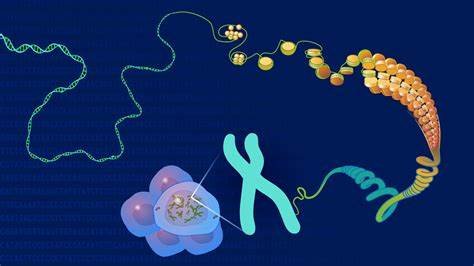MGI Supports the Ministry of Health of Indonesia in the Country's Breakthrough National Genome Project
25 August 2022 | Thursday | News

Image Source : Public Domain
Genomics science has been identified as a key part of health technology development under the six-pillar healthcare transformation strategy announced by Indonesia's Ministry of Health (MOH) earlier this year amidst the COVID-19 pandemic. As a result, the Biomedical & Genome Science Initiative for Precision Medicine (BGSi) was established to lead the implementation of precision medicine through the use of genetic technology.
Under BGSi, the first Indonesian National Genome Project will be overseen by the MOH and implemented at Rumah Sakit Cipto Mangunkusumo (RSCM), the nation's largest health and education center as well as home to a leading molecular laboratory known for its quality, technology, and resources. MGI, with the help of its strategic local partner PT Bakti Energi Abadi, will create a total workflow based on ultra-high-throughput genetic sequencer DNBSEQ-T7RS*, the MGISP-960RS and MGISP-NE384RS automation systems, and ZTRON LITE data platform.
"MGI is honored to support BGSi and the National Genome Project by providing our cutting-edge automation and sequencing technology* to improve human health," said Dr. Roy Tan, General Manager of MGI Asia Pacific. "This initiative will not only have a profound impact on genomic science, biomedical research, and bioinformatics throughout the next five years, but will also strengthen local biotech talent and capabilities, uncover new models of collaboration, and advance Indonesia's biomedical technology industry."
Regarded as a scientific breakthrough and the first of its kind in Indonesia, the project targets to collect biological samples and curate the unique genome data of 10,000 Indonesians in the next two years in order to develop insights into and map variants from the local population with pre-determined priority diseases. The results will contribute to the research and development of treatment in six main disease categories: cancer, infectious diseases, brain and neurodegenerative diseases, metabolic diseases, genetic disorders, and aging.
Originally with only 12 genome sequencing machines in all of Indonesia, the addition of MGI technology* will enhance overall large-scale genomic sequencing infrastructure and boost the country's global competitiveness in the area of life science innovation. MGI's DNBSEQ-T7RS* is the world's largest production scale sequencer to date. It supports multi-sequencing modes with increased accuracy, reduced duplicates, and reduced index hopping, making it a competitive platform for scientific research, clinical research and disease prevention.
Adopting magnetic rod technology, the MGISP-NE384 is a high-throughput automated nucleic acid extractor known for its reliability, safety, and efficiency. Meanwhile, the MGISP-960 high-throughput automated sample preparation system is a flexible, fully automated workstation with 96-channel pipette, guaranteeing easy operation and high speed. Both systems will greatly automate labor-intensive and time-consuming procedures such as DNA/RNA extraction and library prep for high throughput sequencing, thus contributing to improving the overall efficiency and productivity in NGS laboratories.
"Whole genome sequencing has demonstrated its value in health services with the detection and treatment of COVID-19 and will continue to play an important role in ensuring the health of the Indonesian people," said Mr. Budi Gunadi Sadikin, Minister of Health of Indonesia. "We look forward to utilizing MGI's fleet of high-quality products* to better inform to disease prevention strategies and drug and treatment development for the local population and beyond."
Most Read
- How Does GLP-1 Work?
- Innovations In Magnetic Resonance Imaging Introduced By United Imaging
- Management of Relapsed/Refractory Multiple Myeloma
- 2025 Drug Approvals, Decoded: What Every Biopharma Leader Needs to Know
- BioPharma Manufacturing Resilience: Lessons From Capacity Expansion and Supply Chain Resets from 2025
- APAC Biopharma Review 2025: Innovation, Investment, and Influence on the Global Stage
- Top 25 Biotech Innovations Redefining Health And Planet In 2025
- The New AI Gold Rush: Western Pharma’s Billion-Dollar Bet on Chinese Biotech
- Single-Use Systems Are Rewiring Biopharma Manufacturing
- The State of Biotech and Life Science Jobs in Asia Pacific – 2025
- Asia-Pacific Leads the Charge: Latest Global BioSupplier Technologies of 2025
- Invisible Threats, Visible Risks: How the Nitrosamine Crisis Reshaped Asia’s Pharmaceutical Quality Landscape
Bio Jobs
- Sanofi Turns The Page As Belén Garijo Steps In And Paul Hudson Steps Out
- Global Survey Reveals Nearly 40% of Employees Facing Fertility Challenges Consider Leaving Their Jobs
- BioMed X and AbbVie Begin Global Search for Bold Neuroscience Talent To Decode the Biology of Anhedonia
- Thermo Fisher Expands Bengaluru R&D Centre to Advance Antibody Innovation and Strengthen India’s Life Sciences Ecosystem
- Accord Plasma (Intas Group) Acquires Prothya Biosolutions to Expand Global Plasma Capabilities
- ACG Announces $200 Million Investment to Establish First U.S. Capsule Manufacturing Facility in Atlanta
- AstraZeneca Invests $4.5 Billion to Build Advanced Manufacturing Facility in Virginia, Expanding U.S. Medicine Production
News











